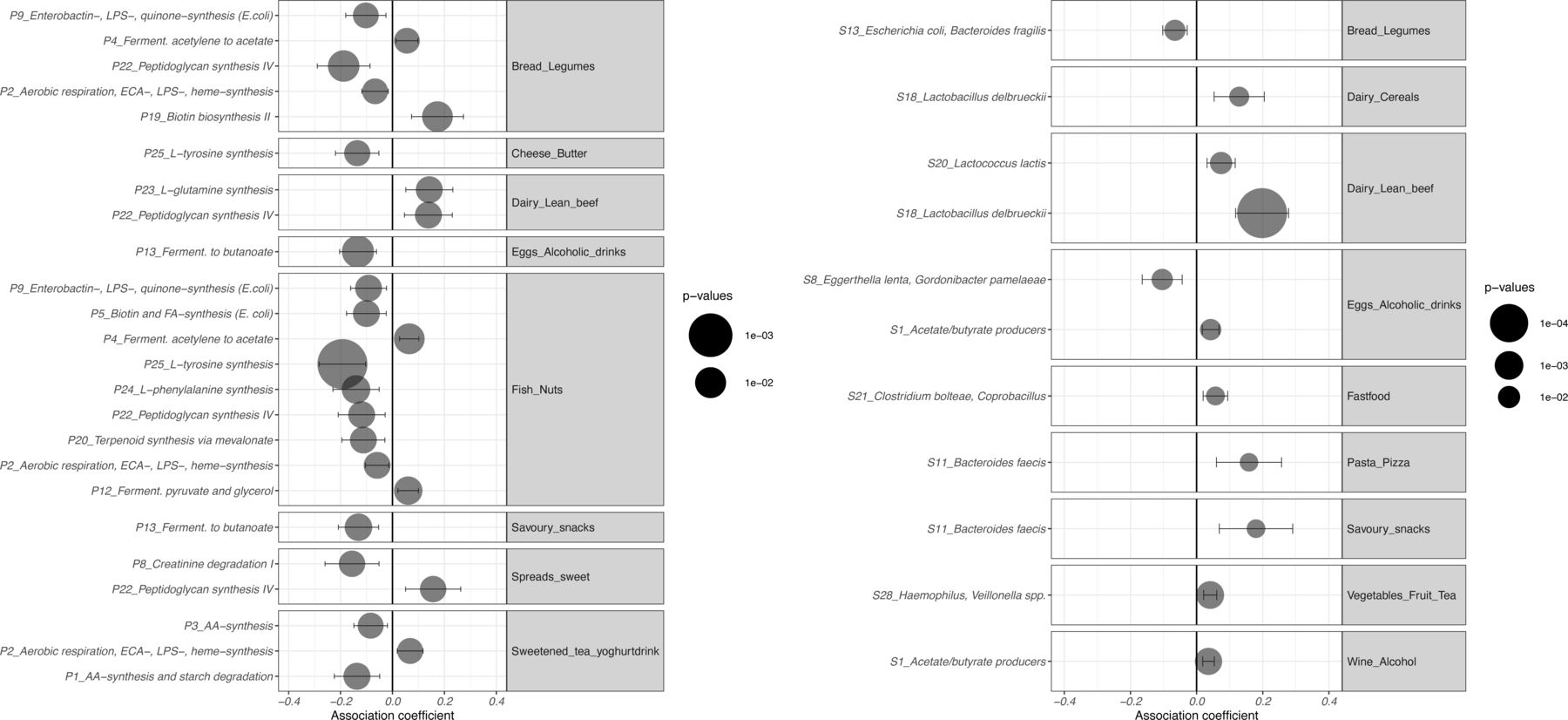💡 The human gut microbiome plays a crucial role in modulating the balance between pro-inflammatory and anti-inflammatory responses in the gastrointestinal tract. This study aimed to unravel the intricate interactions between dietary factors, gut microbiota, and their functional capacity to induce or mitigate intestinal inflammation.
📍 Key Findings:
Dietary Patterns and Microbial Clusters: The study revealed 38 significant associations between dietary patterns and microbial clusters. Specific dietary habits consistently correlated with groups of bacteria that play essential roles in maintaining gut health and inflammatory modulation.
Food-Microbiota Associations: The research identified 61 individual foods and nutrients that were associated with 61 microbial species and 249 metabolic pathways, emphasizing a strong link between dietary choices and gut microbiota composition and functionality. Notable findings included: Higher consumption of processed and animal-derived foods was linked to an increase in Firmicutes, Ruminococcus species, and pathways related to endotoxin synthesis, which can promote inflammation. Plant-based foods and fish were positively associated with beneficial short-chain fatty acid-producing commensals and pathways involved in nutrient metabolism.
Role of Polyphenol-Rich Foods: Polyphenol-rich foods like coffee, tea, red wine, and fruits were observed to have anti-inflammatory effects. For example, coffee consumption was associated with increased abundance of Oscillibacter and reduced pro-inflammatory pathways.
Plant Protein vs. Animal Protein: Plant protein intake was linked to numerous fermentation pathways and the synthesis of anti-inflammatory nutrients and L-ornithine amino acid. In contrast, animal protein consumption was associated with lower Bifidobacterium abundance, a bacterium known for its beneficial role in the gut.
Fats and Gut Microbiome: Total fat intake and meat consumption were positively correlated with bacteria commonly found in the upper GI tract, a condition associated with several inflammatory diseases. Fish consumption, rich in omega-3 fatty acids, was associated with beneficial bacteria like Roseburia hominis and Faecalibacterium prausnitzii.
Impact of Fast Food and Processed Meat: Fast food, processed meat, soft drinks, and sugar consumption were linked to increased levels of pro-inflammatory bacteria and pathways, potentially contributing to conditions like obesity and inflammatory bowel disease (IBD).
📌 This study offers valuable insights into the intricate relationship between diet and the gut microbiome, emphasizing the potential for microbiome-targeted dietary strategies to alleviate and prevent intestinal inflammation.
📌 The findings highlight the importance of consuming plant-based diets rich in legumes, fruits, vegetables, and nuts, as well as emphasizing low-fat fermented dairy and fish.
On the contrary, a diet high in processed foods, animal-derived products, and sugar may increase the risk of inflammation and related conditions. These results underscore the significant role of diet as a complementary therapeutic strategy for modulating the gut microbiome and mitigating inflammatory processes in the gut.
Link to the article : https://tinyurl.com/mrxpsfyw
